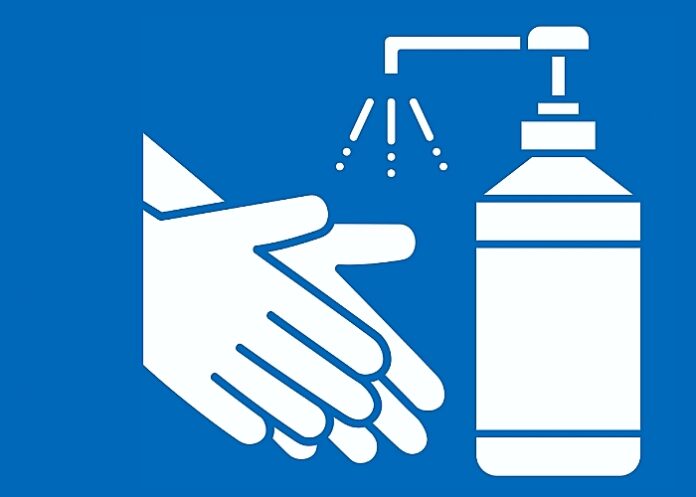An analysis of South African hand-sanitisers found that barely a quarter conform to World Health Organization guidelines on the alcohol content necessary to have a virucidal effect on SARS-CoV-2, reports MedicalBrief. The University of Pretoria study in the SA Journal of Science found that the homemade sanitisers tested outperformed the commercial versions by a margin of five to one.
The analysis using gas chromatography and conducted by the Social Insects Research Group, Department of Zoology and Entomology, University of Pretoria, also found that the majority of 50 products tested, did not contain the correct labelling declaration, as recommended by the South African National Standards authority.
“Transmission of SARS-CoV-2 – the causative agent of COVID-19 – can be prevented through non-pharmaceutical interventions such as observing proper hand hygiene using alcohol-based hand rubs/sanitisers (ABHRs) as recommended by the WHO and local health authorities, writes the study author, Abdullahi Yusuf. “However, this recommendation has led to high demand for ABHRs and proliferation of sub-standard products, which do not contain the recommended amount of alcohol.”
“The proliferation of substandard ABHRs is of great public health concern and calls for stricter regulations and enforcement in order to protect consumers, their rights and well-being during and post the COVID-19 pandemic period. However, in the interim, formulation of ABHRs using the WHO guidelines should be mandatory, as such formulations, when made correctly, do have the required virucidal effect against SARS-CoV-2.”
Study details
Determination of alcohols in hand sanitisers: Are off-the-shelf hand sanitisers what they claim to be?
Abdullahi A. Yusuf
Published in the South African Journal of Science on 29 November 2021
Abstract
Transmission of SARS-CoV-2 – the causative agent of COVID-19 – can be prevented through non-pharmaceutical interventions such as observing proper hand hygiene using alcohol-based hand rubs/sanitisers (ABHRs) as recommended by the World Health Oganization and local health authorities. However, this recommendation has led to high demand for ABHRs and proliferation of sub-standard products, which do not contain the recommended amount of alcohol. Fifty products of different origins and formulations obtained off-the-shelf and in public places in and around Pretoria (South Africa) were analysed for their alcohol content using gas chromatography.
Ethanol was the most common alcohol used in the products, followed by isopropanol. Only 21 (42%) of the products analysed contained at least 70% alcohol; of these only 14 (28%) met the WHO recommended 80±5% alcohol content to have a virucidal effect on SARS-CoV-2. Of the 41 commercial off-the-shelf products analysed, 27 (66%) contained less than 70% alcohol in comparison to 13% of homemade products. Only 18% of gel products contained 70% alcohol, compared with 47% for liquid-based products.
Most of the products did not contain the appropriate or correct declaration as recommended by the South African National Standards (SANS 289 and 490). The proliferation of substandard ABHRs is of great public health concern and calls for stricter regulations and enforcement to protect consumers, their rights and well-being during and post the COVID-19 pandemic period. However, in the interim, formulation of ABHRs using the WHO guidelines should be mandatory, as such formulations, when made correctly, do have the required virucidal effect against SARS-CoV-2.
Significance
• Commercial, off-the-shelf and public hand sanitisers were analysed to determine whether they contained enough alcohol to be efficacious virucides as recommended by the WHO.
• The majority of the products analysed were substandard, did not contain the recommended amount of alcohols and were not labelled correctly according to local and international standards.
• Homemade products conformed to a greater degree to the WHO standards for alcohol-based hand sanitisers. It is evident from these results that there is a need to monitor the manufacture of off-the-shelf products to ensure compliance and to assure consumers that products offer the required protection against SARS-CoV-2.
See more from MedicalBrief archives:
Competition Tribunal told of SAPS sanitiser deal over-charging
Gauteng paid R117m to dubious companies for unnecessary fumigations

